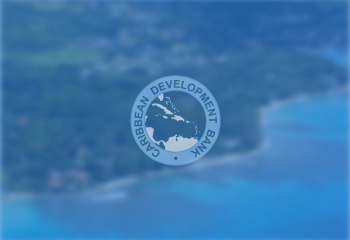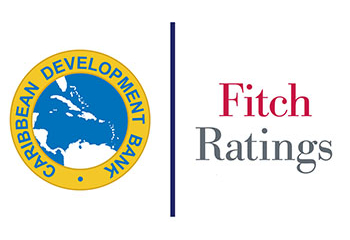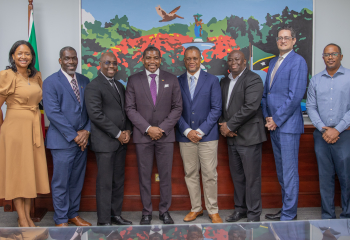CDB, CABEI and CAF sign first Exposure Exchange Agreements between non-AAA and Regional MDBs

The Caribbean Development Bank (CDB), the Central American Bank for Economic Integration (CABEI) and the Development Bank of Latin America and the Caribbean (CAF), have signed landmark Exposure Exchange Agreements (EEAs). These agreements represent a significant step toward strengthening capital positions, enhancing financial resilience, and advancing sustainable development across Latin America and the Caribbean.
CABEI (rated AA) and CAF (rated AA) signed a US$700 million EEA, while CDB (rated AA+) and CABEI executed a US$450 million EEA. These transactions are the first of their kind. These transactions are the first of their kind between Multilateral Development Banks (MDBs) rated below AAA and regional MDBs respectively, underscoring the institutions’ financial strength and growing strategic alignment. Considering the recommendations of the G20’s capital adequacy framework report, these agreements reflect a broader effort within the MDB community to adopt innovative financial instruments that enhance balance sheet efficiency and expand development impact.
Exposure Exchange Agreements enable MDBs to diversify risk by synthetically exchanging portions of their sovereign credit exposures. These transactions do not involve the transfer of loans or affect the relationship between borrowers and their original lenders; rather, they provide an efficient mechanism for reducing portfolio concentration, strengthening capital adequacy metrics, and creating additional lending headroom for member countries.
The agreements highlight each institution’s commitment to leveraging their capital bases more effectively, mobilising greater resources for sustainable development, and deepening regional cooperation. They also reinforce institutional ties among CDB, CABEI, and CAF, paving the way for further collaboration on innovative financial solutions and joint development goals.
CDB’s President, Daniel Best, emphasised that the EEA aligns with his vision to “Innovate” by introducing forward-looking capital solutions that enhance CDB’s ability to deliver sustainable and impactful development financing to its member countries. “This agreement with CABEI is a milestone in cooperation among development banks. It not only reflects our financial strength and capacity for innovation but also sets a precedent for capital optimization and greater support for Latin America and the Caribbean. By efficiently diversifying risks, we enhance our ability to extend new loans to our member countries, financing critical infrastructure, energy transition, and social development projects. These are the types of partnerships we need to drive sustainable development in the region,” he stated.
CABEI’s Executive President, Gisela Sánchez, emphasised the importance of the agreements, stating: “These agreements represent a milestone in our history and a concrete result of our commitment to transforming development financing through strategic partnerships and financial innovation. As part of CABEI’s new Strategy, which prioritizes capital efficiency and the use of innovative financial instruments, these collaborations with CAF and CDB reinforce our role as a catalyst for regional integration and sustainable development. Most importantly, they mark a significant step toward improving the lives of millions of people in Central America, the Caribbean and beyond.”
CAF’s Executive President, Sergio Díaz-Granados stated: “This agreement with CABEI is a milestone in cooperation among development banks. It not only reflects our financial strength and capacity for innovation but also sets a precedent for capital optimization and greater support for Latin America and the Caribbean. By efficiently diversifying risks, we enhance our ability to extend new loans to our member countries, financing critical infrastructure, energy transition, and social development projects. These are the types of partnerships we need to drive sustainable development in the region.”
The signing of these EEAs marks a key milestone in the broader Balance Sheet Optimization (BSO) strategies being pursued by the MDBs to enhance capital adequacy, enhance lending capacity, and deliver long-term value for their members. By leveraging innovative instruments like the EEA, the three institutions are positioning themselves as leaders in modernizing development finance, demonstrating their commitment to impactful, collaborative solutions that strengthen operational capacity to drive sustainable growth and resilience across Latin America and the Caribbean.


